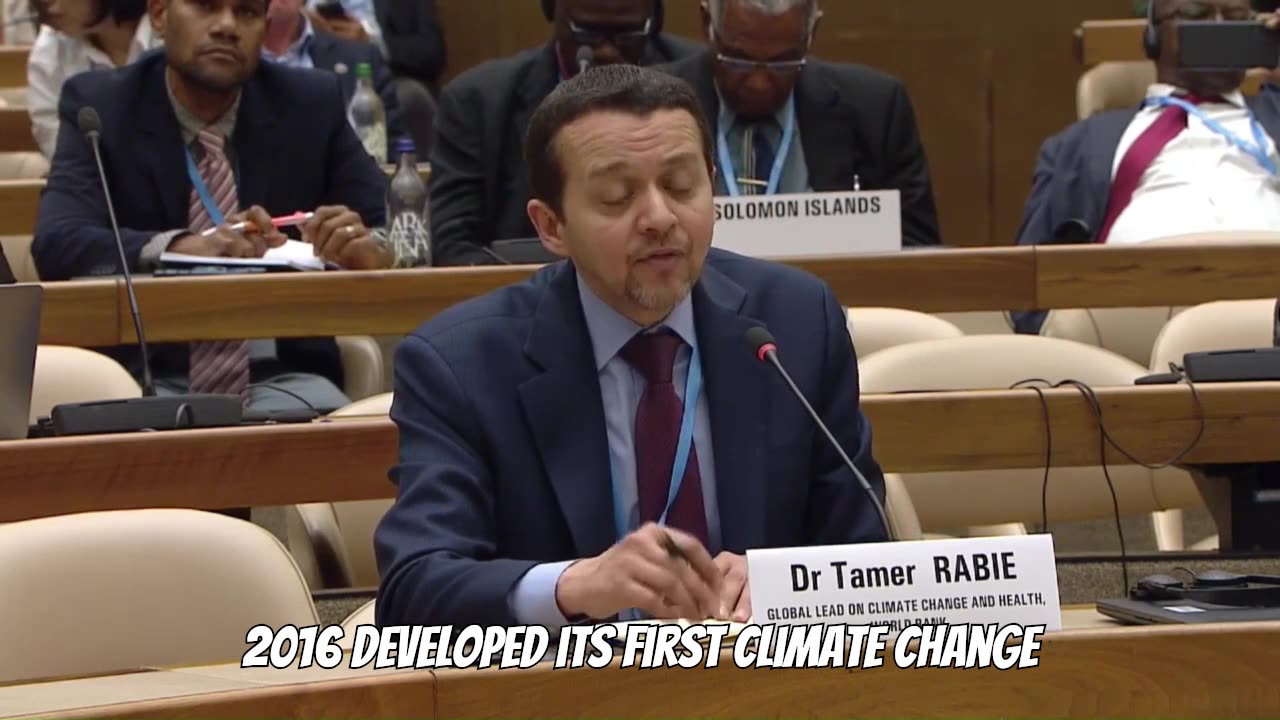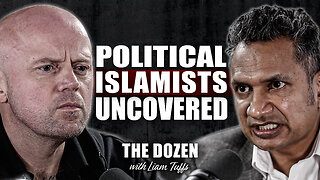Premium Only Content

Tamer Rabie MD, Global Program Lead for Climate and Health at the World Bank
"Climate change tackling the climate crisis for me is not a job. It's been a passion for so many years and in the World Bank I think we've been really committing a lot of our work and resources to actually tackle the climate crisis. I wanna start off at the beginning by just pointing out a few important elements that we also need to take into account when we're talking about the climate crisis and obviously the climate driven burden of disease.
But what we've not heard enough about is how much it's actually impacting on people's lives and livelihoods in terms of earnings, perhaps in terms of impacts also on economic impacts as a result of that. Now, I just wanted to highlight that based on analyses that we've been doing in the World Bank, the result of climate change is going to be pushing nearly 132 million people into extreme poverty by 2030.
Now, out of this figure of 132 million, 44 million is just a result of the health-related impacts from climate change. Also, it's important to mention that the cost of inaction is huge.
It's costing governments a large sum of money today and it will potentially be costing them even more moving into the future. So there's no question in our minds that climate and health and resilience have to be at the center of the dialogue that we're having. But we've also heard that mitigation is a big part of what we need to be able to do. There's, as we know, about 5% of total carbon emissions emerge from the health sector. So this should not be something that we forget in our dialogue. So I wanna build a little bit on what we've been hearing. The climate crisis is a health crisis, and also I'd like perhaps to say that if we are investing in health, we're in fact investing in people's resilience.
And with that in mind, and following the Paris Agreement, the World Bank in 2016 developed its first climate change action plan that defined a number of core indicators and targets for World Bank financing. And as a result of that, we've committed 35% of the share of World Bank financing across all sectors by fiscal year 2025 to go towards climate adaptation mitigation. This number will be increasing to 70% of the share of financing from the bank by fiscal year 30. And starting July 1st of this year, all World Bank investments that will be approved by the board of executive directors will have to show that they are aligned with the Paris Agreement. We have spent 2.2 billion US dollars over the past five years in assisting countries with their health investments on climate.
And 80% of that has been on adaptation. Now we're taking a transformative approach as we speak now, and really trying to integrate climate within the 44 billion US dollar active investment portfolio that we have in health. And this is a huge game changer for us in the World Bank. We're adopting a country driven model that comes in really to focus on understanding risks and vulnerabilities, adaptive capacities as well as emissions at a country level, but at the same time also thinking about how we could work with our client countries and supporting them through capacity development and particularly obviously in the case of financing of investments for climate action. So for that, we're looking at needs, we're looking at sources, and we're looking at funding modalities and innovation for financing. I'll end just by saying that a big thank you to the COP28 presidency for bringing in a health day this year for bringing us all of us together to think about solutions and to maximise financing for climate and health."
-
 1:23:17
1:23:17
Game On!
11 hours ago $0.03 earnedHappy Super Bowl Week! Our Top 10 Super Bowl Props to Bet!
3K1 -
 LIVE
LIVE
Jeff Ahern
1 hour agoMonday Madness with Jeff Ahern (6am pacific)
833 watching -
 LIVE
LIVE
SoniCentric
2 days agoSoothing Autumn River Coffee Shop with Relaxing Jazz
311 watching -
 27:00
27:00
Squaring The Circle, A Randall Carlson Podcast
6 hours agoSPECIAL EPISODE: #037 Randall Carlson Explains The Vital Role of Sacred Geometry in the Modern Age.
4.99K1 -
 15:31
15:31
DEADBUGsays
3 hours agoThe Sagamihara Massacre (Japans worst modern day mass killing)
2.91K1 -
 1:24:06
1:24:06
TheDozenPodcast
20 hours agoIslamist Gangsters, Grooming Gangs, Labour Elites: Raja Miah
11.6K5 -
 19:39
19:39
Fit'n Fire
22 hours ago $2.13 earnedRiley Defense RAK47 "Krink" 1,696 Rounds Later
41.3K5 -
 31:05
31:05
The Finance Hub
18 hours ago $5.32 earnedI CAN'T BELIEVE WHAT JUST HAPPENED TO BARACK OBAMA!
24.5K38 -
 5:00
5:00
Adam Does Movies
16 hours ago $0.79 earnedCompanion Movie Review - Objectifying Sexbots Ends Today!
14.8K1 -
 14:23
14:23
GBGunsRumble
1 day agoGBGuns Armory Ep 136 Genesis Arms Gen-12 SSBM
11.2K2